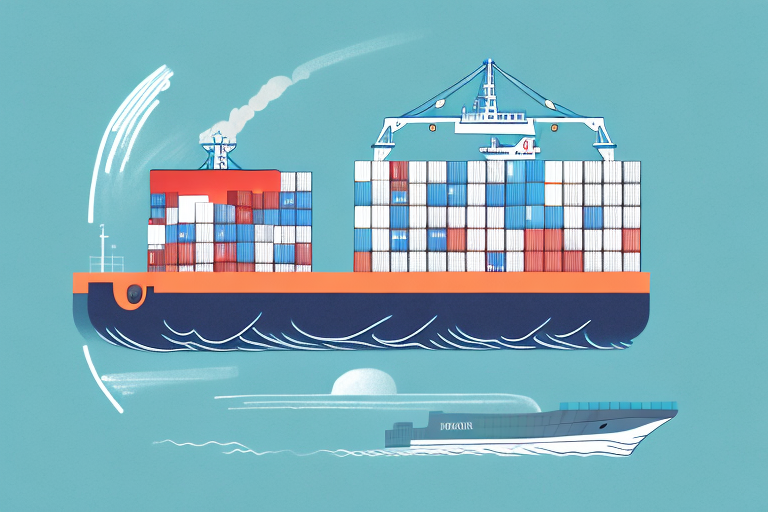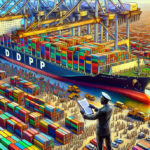Introduction to DDP Shipping
In the realm of international trade, understanding the various shipping terms is crucial for both buyers and sellers. One such term is DDP, which stands for Delivered Duty Paid. DDP is an Incoterm that signifies the seller's responsibility for all costs and risks associated with delivering goods to the buyer's location, including customs duties, taxes, and fees. This comprehensive guide delves into the meaning of DDP in shipping and its pivotal role in global commerce.
Understanding Incoterms and DDP's Role
What Are Incoterms?
Incoterms are a set of internationally recognized rules published by the International Chamber of Commerce (ICC). They define the responsibilities of buyers and sellers in international transactions, particularly concerning the delivery of goods.
Significance of DDP in Incoterms
Among the various Incoterms, DDP imposes the maximum responsibility on the seller. Under DDP, the seller handles everything from packaging and transportation to customs clearance and payment of duties. This arrangement can simplify the process for the buyer, who receives goods without the burden of managing complex shipping logistics.
Benefits of DDP Shipping for Importers and E-commerce
Predictable Costs
One of the primary advantages of DDP shipping is the predictability of costs. Since the seller bears all expenses related to shipping, importers can budget more effectively without worrying about unexpected charges.
Enhanced Customer Experience
For e-commerce businesses, DDP shipping ensures a seamless delivery process. Customers receive their purchases directly without dealing with customs procedures or additional fees, enhancing overall satisfaction and loyalty.
Focus on Core Business Activities
By outsourcing the complexities of international shipping, businesses can concentrate on their core activities such as marketing, product development, and customer service.
Comparing DDP with Other Incoterms
DDP vs. EXW
Under EXW (Ex Works), the seller's responsibility is limited to making goods available at their premises. The buyer assumes all costs and risks from that point onward, including transportation and customs clearance.
DDP vs. FOB
FOB (Free on Board) requires the seller to load goods onto the vessel nominated by the buyer. The buyer then takes responsibility for all costs and risks from that stage.
Advantages of DDP Over Other Incoterms
DDP offers a more hands-off experience for buyers compared to EXW and FOB, as it alleviates them from handling logistics and regulatory compliance.
Legal Considerations and Calculating Duties for DDP
Compliance with International Regulations
DDP shipping involves navigating a myriad of legal and regulatory requirements, including customs clearance and import taxes. Sellers must ensure adherence to all relevant laws to avoid penalties or shipment delays.
Calculating Duties and Taxes
Determining the total duties and taxes for DDP shipments depends on factors like the goods' value, origin, and classification. Utilizing the Harmonized System (HS) codes can aid in accurately classifying products to determine applicable tariffs.
Mitigating Legal Risks
Partnering with experienced logistics providers who understand international trade laws is essential. They can assist in managing documentation, securing necessary permits, and ensuring compliance to mitigate legal risks.
Choosing the Right Logistics Partner
Experience and Expertise
Select a logistics provider with a proven track record in handling DDP shipments and a deep understanding of international trade regulations.
Global Network
A robust global network of carriers and warehouses ensures efficient and timely delivery of goods to various international destinations.
Customer Service and Transparency
Effective communication and transparent billing practices are vital for a successful partnership. Look for providers offering real-time tracking and responsive customer support.
Competitive Pricing
While cost shouldn't be the sole determining factor, competitive and transparent pricing structures are important to manage shipping expenses effectively.
Future of DDP Shipping: Trends and Predictions
The logistics landscape continues to evolve with technological advancements and shifting global trade dynamics. Here are some trends shaping the future of DDP shipping:
- Digital Transformation: Technologies like blockchain and artificial intelligence are enhancing transparency and efficiency in the shipping process.
- Sustainability: There is a growing emphasis on eco-friendly shipping practices, prompting logistics providers to adopt greener methods.
- Increased E-commerce Integration: The surge in online shopping, accelerated by the COVID-19 pandemic, continues to drive demand for streamlined DDP shipping solutions.
- Customization and Flexibility: Businesses are seeking more tailored shipping options to meet specific needs, requiring logistics partners to offer adaptable services.
Staying abreast of these trends is essential for businesses looking to optimize their international shipping strategies and maintain a competitive edge.
Conclusion
Delivered Duty Paid (DDP) shipping is a comprehensive Incoterm that offers significant benefits for both importers and businesses engaged in international trade. By understanding its intricacies and partnering with a reliable logistics provider, companies can simplify their shipping processes, reduce risks, and enhance customer satisfaction. As the global market continues to expand, DDP shipping stands as a valuable strategy for navigating the complexities of international logistics.








